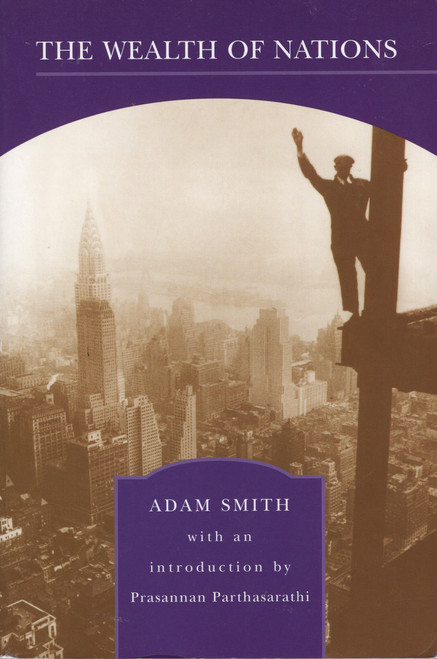In addressing the nature and causes of the wealth of nations, Adam Smith made one of the most potent contributions to subsequent ideological history. Recently, successive British governments have invoked his policy recommendations of free trade and laissez-faire to aid their extension of privatization and market effectiveness into areas such as health and education.
Smith did more than write an economics textbook: the Wealth of Nations is a panoramic narrative about the struggle for individual liberty and general prosperity in history.
Where other selected editions highlight Books One to Three, this edition includes generous sections from all five books.
This edition includes: Introduction, Textual note, Bibliography, Chronology, Explanatory notes, Commentary, Index
Edited with an Introduction and Notes by Kathryn Sutherland
About the Author
Adam Smith (1723 – 1790) was a Scottish moral philosopher, pioneer of political economy, and a key figure in the Scottish Enlightenment. Smith is best known for two classic works: The Theory of Moral Sentiments (1759), and An Inquiry into the Nature and Causes of the Wealth of Nations (1776). The latter, usually abbreviated as The Wealth of Nations, is considered his magnum opus and the first modern work of economics. Smith is cited as the father of modern economics and is still among the most influential thinkers in the field of economics today.
Smith studied social philosophy at the University of Glasgow and at Balliol College, Oxford, where he was one of the first students to benefit from scholarships set up by fellow Scot, John Snell. After graduating, he delivered a successful series of public lectures at Edinburgh, leading him to collaborate with David Hume during the Scottish Enlightenment. Smith obtained a professorship at Glasgow teaching moral philosophy, and during this time he wrote and published The Theory of Moral Sentiments. In his later life, he took a tutoring position that allowed him to travel throughout Europe, where he met other intellectual leaders of his day.
Smith laid the foundations of classical free market economic theory. The Wealth of Nations was a precursor to the modern academic discipline of economics. In this and other works, he expounded upon how rational self-interest and competition can lead to economic prosperity. Smith was controversial in his own day and his general approach and writing style were often satirized by Tory writers in the moralizing tradition of William Hogarth and Jonathan Swift. In 2005, The Wealth of Nations was named among the 100 Best Scottish Books of all time.
Kathryn Sutherland is a Lecturer in English Literature at University of Manchester.







